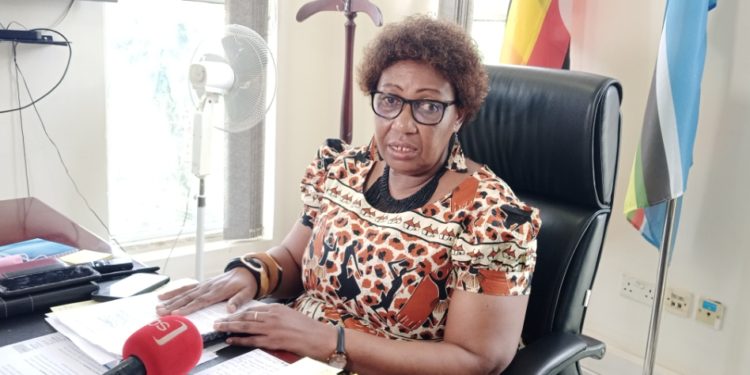By CHIMPREPORTS
The Chairperson of Uganda Human Rights Commission (UHRC) Mariam Wangadya has said she receives a daily fuel allowance of a paltry Shs 20,000, crippling her work.
“As chairperson of a constitutional body, my salary is two thirds of that salary of deputy head of that constitutional body (Inspectorate of Government),” said Wangadya, who previously served as Deputy Inspector General of Government.
“I am getting fuel of Shs20,000 per day which is Shs600,000 per month,” she told lawmakers at Parliament on Monday.
Yet, a litre of petrol now costs Shs 5,500. This means Wangadya has to dig deep in her pockets to foot her fuel bill as the allowance covers only 3 litres of fuel per day.
Government’s failure to provide adequate financial support to the human rights body undermines its ability to investigate rising acts of human rights violations across Uganda.
The role of UHRC is to recommend to Parliament effective measures to promote human rights including provision of compensation to victims of violations of human rights or their families.
The body is also mandated to create and sustain within society the awareness of the provisions of this constitution as the fundamental law of the people of Uganda.
NUP Saga
Wangadya urged Parliament to provide an additional Shs3.756Bn to enhance the salary of its staff whom she said are struggling financially.
Wangadya has been under fire from political activists to investigate the whereabouts of National Unity Platform (NUP) members reportedly held in ungazetted places by security services.
She, however, blasted NUP for furnishing the Commission with a doctored list of missing persons, causing unnecessary drama and wastage of resources.
“Our entire budget was diverted looking for honestly what I considered non-existent persons or some who actually exist today live in foreign countries. Others were out on bail for some serious crimes like terrorism, vandalisation of electric wires, so when we reached them, they were so surprised that they appeared on the list of missing people,” said Wangadya.
“In my conclusion, none of these people are genuinely missing. From the interactions we have done with these people, none of those people provided for us is missing,” she emphasised.







Discussion about this post